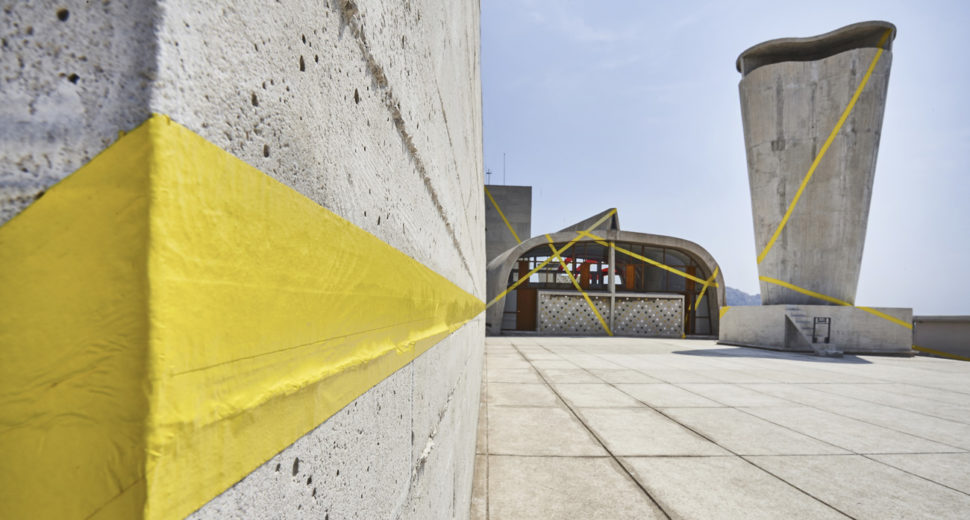News, Août 2016
Photos © Sébastien Veronese
The artist, who specialises in site-specific perspective artworks, created the piece for the MAMO arts centre that now occupies the building's roof.
Swiss artist Felice Varini has used brightly coloured paintwork to transform the rooftop of Le Corbusier’s iconic Unité d’Habitation in Marseille into a huge optical illusion. Varini added sections of red and yellow paintwork to the concrete blocks that make up the roof terrace of Le Corbusier’s famous housing scheme. These appear to connect when viewed from certain angles. The artist, who specialises in site-specific perspective artworks, created the piece for the MAMO arts centre that now occupies the building’s roof.
The installation uses the concrete walls of the building as a giant canvas and spans the whole terrace of the centre. The fragments of red and yellow paintwork align from three vantage points on the terrace to complete geometric patterns. ”This place is a landmark, a huge influence,” said Varini, who often works with architecture and previously created a similar installation at the V&A museum in London. ”It is a true microcosm, designed as a small city with its range of complex volumes, a small city with a view over the large city of Marseille.”
One view shows a pair of red scalene triangles with circular cut outs. Another creates a circular motif, and the third shows a series of overlapping lines. When the viewer leaves each viewpoint, the images fragment. ”I generally scour the venue taking in its architecture, materials, history and function,” said Varni. ”Based on its varying spatial data, I define a viewpoint around which my initiative takes shape,” he added. ”For me a viewpoint is a point in the space that I choose carefully: it is usually situated at my eye level and preferably located in a key passageway, for example where one room leads to another, a landing.” Le Corbusier’s first Unité d’Habitation is arguably the most influential Brutalist building of all time. With its human proportions, chunky pilotis and interior “streets”, it redefined high-density housing by reimagining a city inside an 18-storey slab block.
French designer Ora-Ïto set up MAMO – short for Marseille Modulor – on the roof of the building in 2013. The art centre occupies a terrace originally intended as an open-air gymnasium on top of the 1950s housing block. Varini follows a list of eminent artists to have created installations for MAMO since its opening, including Daniel Buren and Dan Graham.
The À Ciel Ouvert installation opened at the beginning of July and will remain open to the public until 2 October 2016.
